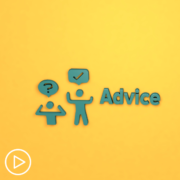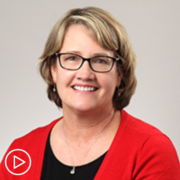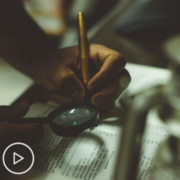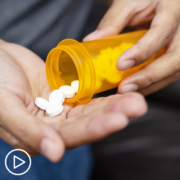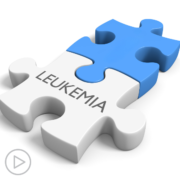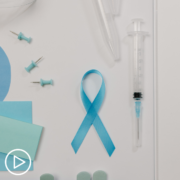Expert Perspective | Key Advice for AML Patients
Expert Perspective | Key Advice for AML Patients from Patient Empowerment Network on Vimeo.
Facing an AML diagnosis can feel overwhelming. Dr. Omer Jamy shares tips for newly diagnosed AML patients, emphasizing the importance of a consultation with a specialist.
Dr. Omer Jamy is a Leukemia and Bone Marrow Transplant Physician and Assistant Professor at the University of Alabama at Birmingham. Learn more about Dr. Omer Jamy.
Related Resources:
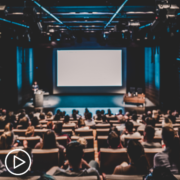
|
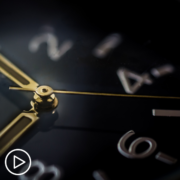
|
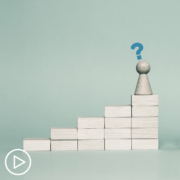
|
Transcript:
Katherine Banwell:
Dr. Jamy, for patients who have been diagnosed with AML, could you share three key pieces of advice for them. How can they be proactive in their care?
Dr. Omer Jamy:
Sure. So, I feel like as a leukemia physician I would like to see, just to give you an example, I’d like to see all the leukemia patients in Alabama. But that’s not feasible, right? But what I would recommend to patients and caregivers is that wherever they are diagnosed, I do feel that they would benefit from a consultation with a leukemia physician at a tertiary care center or an academic center. And they would benefit due to various reasons, right? So, the first reason would be that as a leukemia physician my job is to just keep myself upgraded with leukemia care, leukemia management.
So, one aspect of leukemia is therapeutics, right? So, drugs that are approved, easy to give. But the other aspect is understanding the biology of the disease, understanding how leukemia is going to behave. To get a better profile for AML for a patient. So, in a way saying that not all AML cases are the same. So, to be seen at a center would help the physician understand the unique cytogenetic or molecular profile of that patient’s AML which may be different from the next patient’s AML which could mean that the treatment algorithm for one person might be slightly different from the second person. So, I mean the academic and the people working at academic centers cannot survive without people working in the community, so it goes hand in hand. So, I feel like co-management of a patient with AML is extremely important. I feel like things will not get missed that way.
I feel like the treatment plan, no matter where it is implemented, would really benefit the patient. It can be implemented closer to home as long as it’s been co-managed with someone closer to home as well as someone at the center where they have access to more information. What this would also help is get the person and the family plugged into a system where, let’s say if therapy wasn’t working, they’d have access to enroll on clinical trials down the line as well. Which unfortunately are only present at academic centers and not very widely available, especially for blood cancers. There may be trials for solid tumors easily conducted outside of academic centers, but unfortunately that’s not the case for blood cancers, specifically AML. So, the opportunity to enroll in clinical trials will also help.
And then lastly, I feel like it’s our ability to offer bone marrow transplant to older patients has improved over the past 10 to 15 years.
We’ve become better in identifying donors and in identifying patients, getting them ready for transplant that I feel that a person and the caregiver should inquire from their physician about the opportunity – oh, of No. 1 the need for transplant for the leukemia is because not all the AML patients may benefit from our transplant, but most of them do. And definitely anyone who relapses would benefit from a stem cell transplant.
So, I feel like inquiring about that is very important because to get plugged in at a transplant center early on is important because you don’t want to waste time early on. You may not need the transplant, but just having the consultation and just having a preliminary donor search ongoing in the background is really helpful because when the time comes that a person needs the transplant, then you’ve already got some of that information ready, and you can proceed quickly. So, I feel like a few of those things might be helpful which I try to educate in the community as well and do outreach.
Because I feel like it’s important to let people know that AML is an aggressive disease. Transplant is pretty intense, but we are now making it more and more tolerable for older patients.

